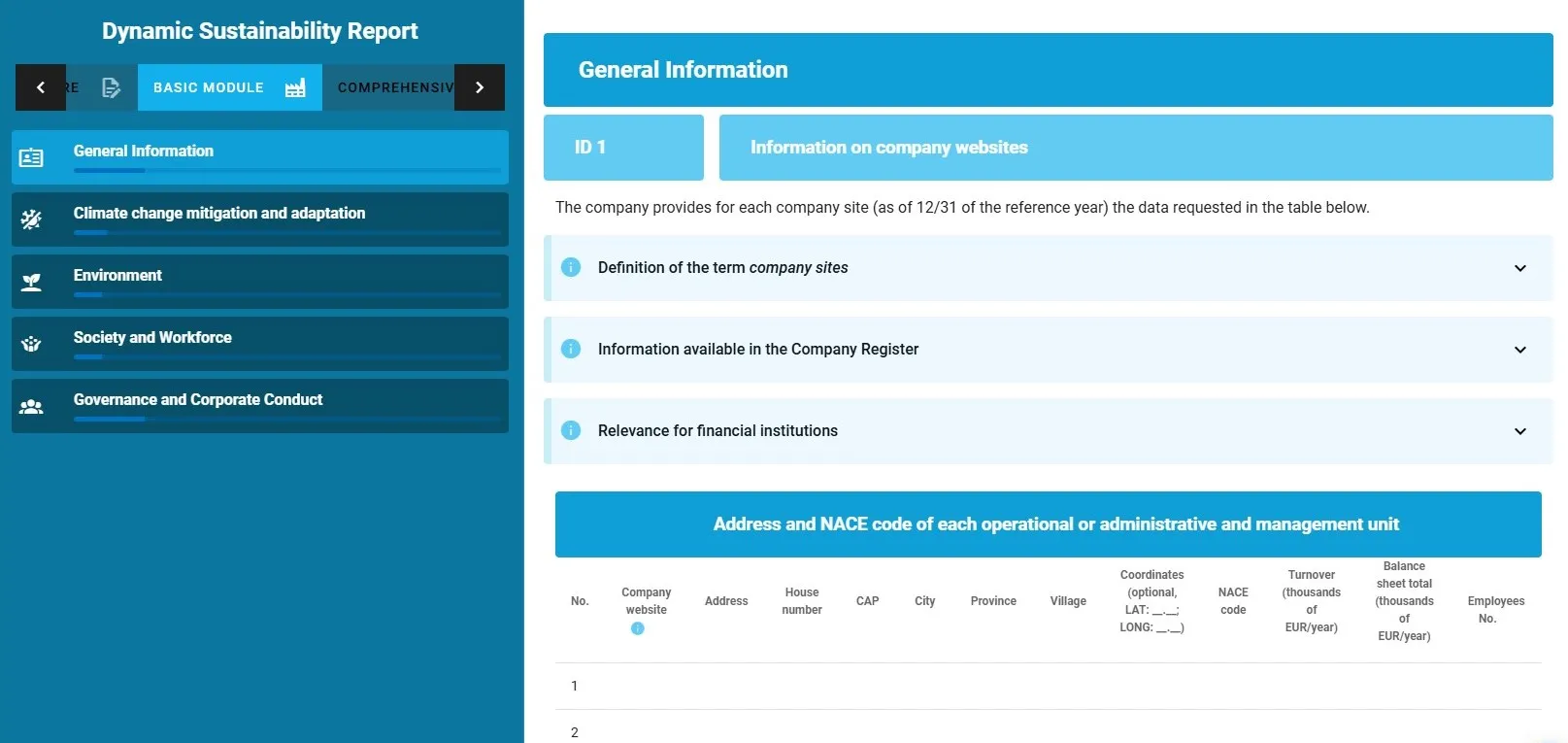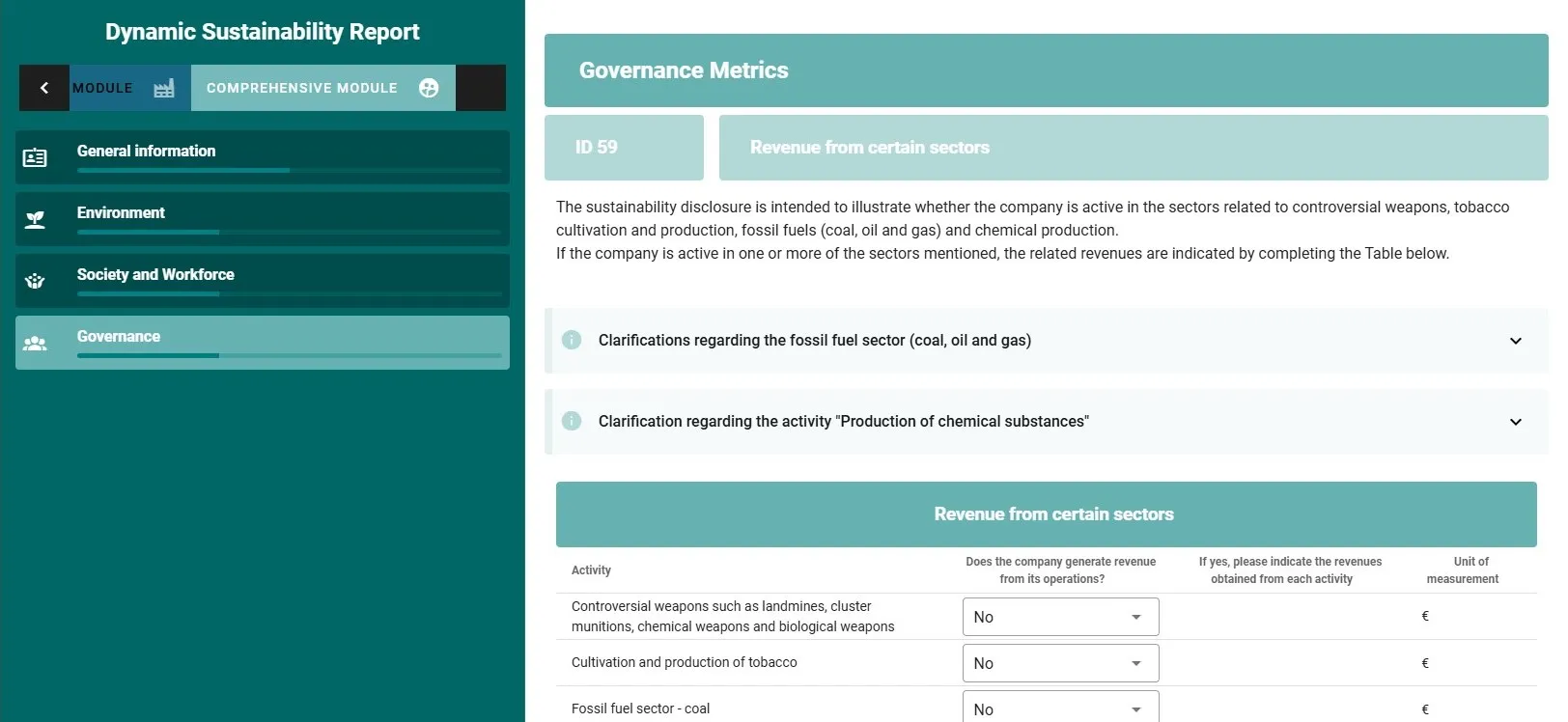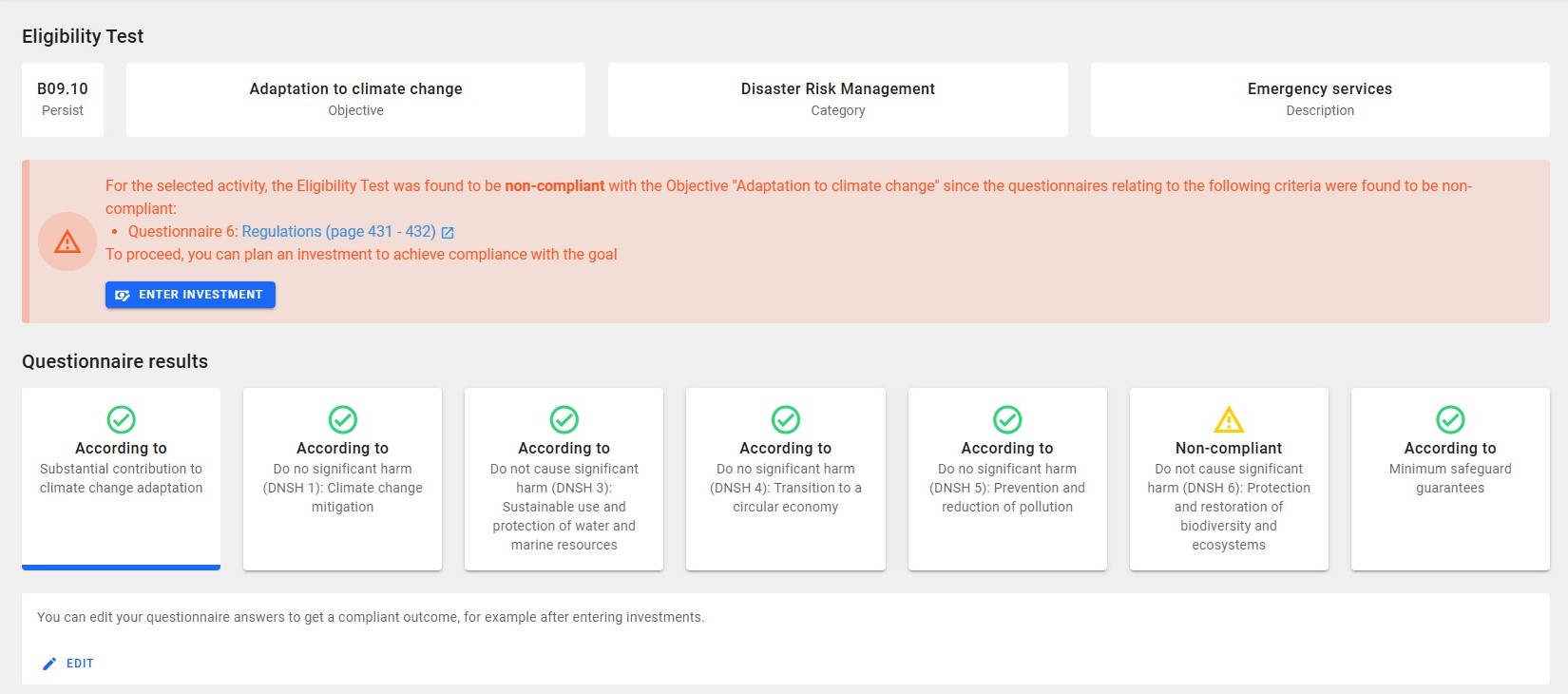Why integrate the Dynamic Business Planner with ESG information?
The sustainability goals set by the United Nations and the European Union require significant commitment from businesses, including small and medium-sized enterprises (SMEs), which play a key role in the ecological transition. Dynamic Business Planner enables, through its ESG modules, the planning of eco-sustainable investments and voluntary sustainability reporting.
Benefits for Our Clients
ESG solutions are currently used by our Clients for various purposes.
Small and Medium Enterprises (SMEs)
Access to Favorable credit
Access to favorable financing conditions through the presentation of Forecast Plans linked to ESG objectives and aimed at greater compliance with the EU Taxonomy.
Accounting Firms / ESG Consulting
ESG Reporting
Verification of compliance with the EU Taxonomy and support in drafting voluntary sustainability declarations (in line with European and national guidelines).
Dynamic Sustainability Report
Dynamic Sustainability Report is the module designed to support SMEs in drafting their Voluntary Sustainability Declaration. Following European guidelines («Voluntary Reporting Standard for SMEs» by EFRAG) and national guidelines (such as the «Sustainability Dialogue between SMEs and Banks» by the Ministry of Economy and Finance), the solution offers questionnaires focused on environmental, climate, social, and corporate conduct topics, facilitating structured and straightforward reporting.
Basic Module
Collects essential sustainability information for SMEs. The module includes:
General information about the company.
Information related to the EU Taxonomy regarding environmental objectives of climate change mitigation and adaptation.
Environmental information (e.g., pollutant emissions into air, soil, and water).
Social information (e.g., human rights policies).
Governance and business conduct information (e.g., adoption of an organization and control model 231).

Comprehensive Module
In addition to the information provided in the Basic Module, the Comprehensive Module is designed to fully address the needs of financiers, investors, and business clients. This information reflects the financial market and the respective regulatory obligations of participants, allowing the assessment of sustainability risk profiles, for example, as a potential supplier or loan beneficiary.

European Union Taxonomy
The EU Taxonomy solution enables businesses of any size to assess the environmental sustainability of their economic activities according to European regulations and to make sustainable investment decisions. Using their ATECO code, businesses can review environmental objectives, and through a dichotomous questionnaire, information can be collected quickly and easily, supporting companies in their reporting obligations.
